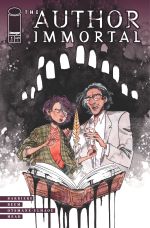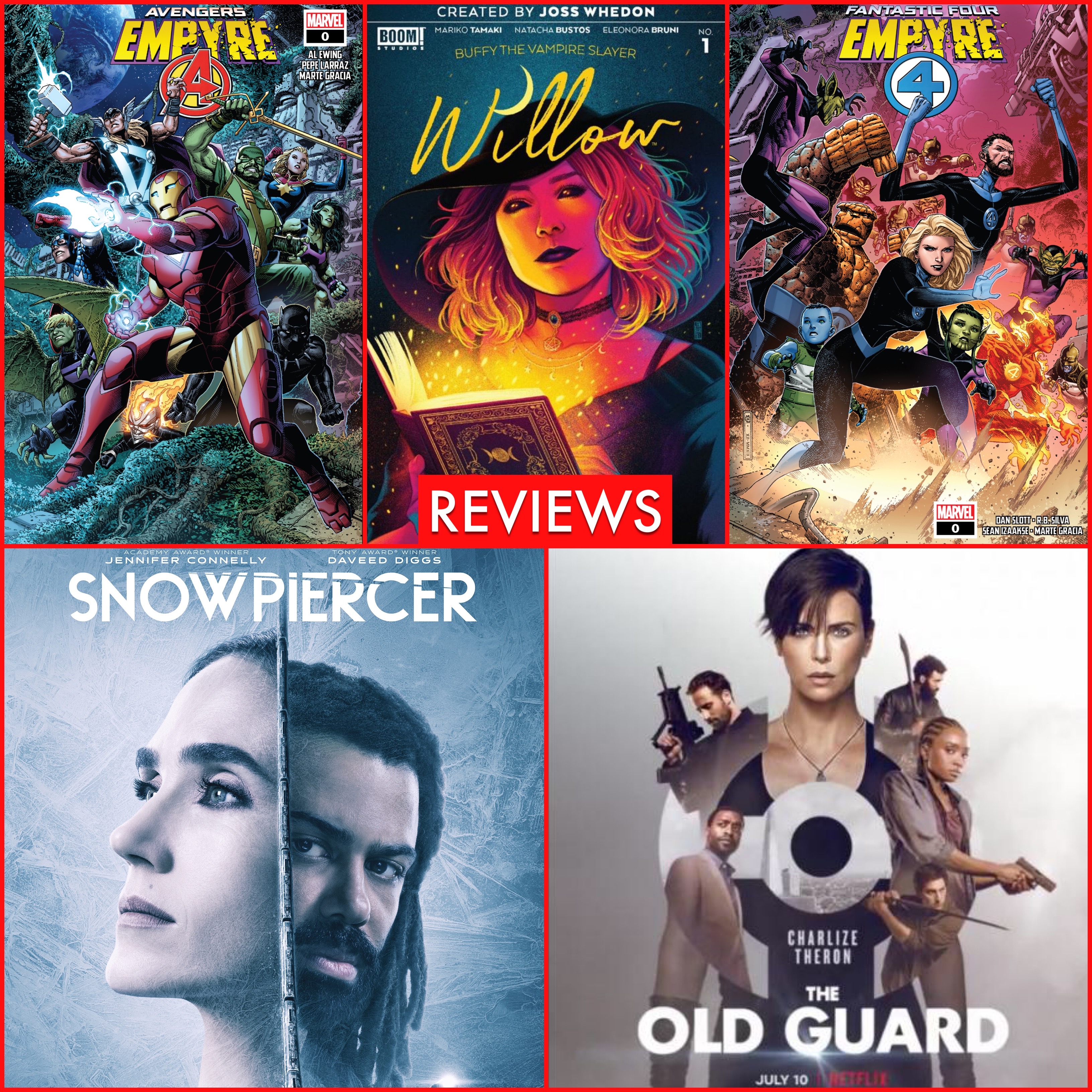|

|
Nathan Edmondson
 SEND THIS TO A FRIEND! SEND THIS TO A FRIEND!
The Pacific Northwest (where I live) has become one of the great regions where comic creators seem to migrate, and congregate. You live in Georgia, which is part of another hotbed area. Dan Jolley, Cully Hamner, Tony Harris, Tom Feister…the list goes on, and I’m barely scratching the surface. Our community is surprisingly tight-knit, despite (or perhaps, as a result of) the massive diversity of style and discipline. What’s your community like?
There are some real names all around Georgia but I think we mostly all have our heads down working all the time, and unlike, say, Portland, there’s no central downtown where we could all hang out anyway. For me personally, I tend to keep my home my home a place where I can write in piece and socialize with people who don’t talk “industry” talk--I get so much of that when traveling that I need a haven of sanity to return to.
You have said, in other interviews, that you are most inspired as a writer by classical literature. I’d love for you to elaborate on that. Which classical works have influenced you most? How do you think that influence comes out in your own work?
I’m not sure I can identify the ways in which classical works come out in my own; hopefully I studied well enough (not likely) that I’m saturated with it and not just pulling quotes or something. With OLYMPUS, for example, there’s a direct line from one of the texts in the Great Books Canon (Voyage of Argo) to my work but overall the effect of studying and reading the Great Books informs every story you approach, from conception to promotion.
Do you think that comics could ever be considered classical literature? Not in relation to our own understanding of what that means, necessarily, but what happens a hundred years from now? How will these weird little periodicals we create be regarded?
There are a few criteria that make a book a “great” work of literature versus being something less revered. Wide, if not universal importance of the work; profundity and effectiveness; resonance and importance in its time and continued relevance over time. The last one especially is difficult if not impossible to determine with contemporary work and that’s why the Great Books program usually doesn’t include works younger than 50 years or so--they haven’t been put through the test of time. I’m sure the Lord of the Rings trilogy, for example, will continue to have long standing relevance and importance throughout time but as it stands the work isn’t quite old enough to have spoken to and been received by a generation with an entirely new set of rules and experiences. Great works transcend those kinds of barriers.
Some comics I’m sure will be important to the future but I think it’s firstly a mistake to compare comics to novels. They are entirely different art forms and should be judged and considered differently. Both, however, have plenty of crap one must sift through. Dracula was an important work in its time--but how many of the other thousands of novels printed at that time can you name?
You can’t deny the effect that comics are having on our culture, today in an especial way by their artistic and commercial relationship with film and television.
Your career trajectory seems to follow what has become a somewhat common pattern in the industry: A creator comes on the scene with his own work, builds a loyal following, and then gets the swipe at the mainstream Big Time. Was there any notion of a plan in place when you started, or has it simply happened?
Absolutely no plan when I started. Now of course, with the help of my manager, attorney, wife, battle scars, I plot my career moves a bit more strategically.
How do you find the experience of serving a corporate publisher, versus serving yourself? Some people have real difficulty navigating that disparity.
There are challenges with both but I’ve found if I apply myself to each I do better with the other, and bring in more readers to each and the other. It makes an enormous difference what kind of chemistry you have with your editors and collaborators. Some may perhaps find it difficult to transition but they may come to one or the other with unrealistic expectations.
I’d like to talk about THE ACTIVITY. It’s always great to see more espionage/military thrillers in comics. Would you explain it for any readers who may be uninitiated, please?
THE ACTIVITY is a book I conceived with Mitch Gerads about a Special Operations group called the Intelligence Support Activity (Gray Fox, etc). The book is a high-stakes, black ops thriller steeped in realism; the book has in some very cool ways gained us the attention of and opportunities with the special operations world in the US military (and a few other countries, too).
I think there’s an interesting balance between accurately portraying the “real world” aspects of those stories, and also working within the entertainment of the genre. How do you approach THE ACTIVITY?
We did our research first, and then we told the tale. We didn’t try to explain facts and figures and gun technicalities, we just thought of--or retold--what we hoped would be exciting stories. As with any work, though, it’s character, character, character first, and that’s how we approached this.
Did that book have any influence on you getting the writing gig for Ubisoft’s SPLINTER CELL game?
It had everything to do with getting it. Ubisoft has made no secret of the fact that they are fans of THE ACTIVITY, and writing SPLINTER CELL: ECHOES I brought much of the same realism--and even a character cameo--to the franchise’s foray into the comic world.
Another of your creator-owned books, WHO IS JAKE ELLIS? has been optioned by Fox for a movie. Can you tell me a little bit about that process, and where things currently stand for the book, and the movie?
Things are moving along efficiently and we’re very excited. We have the holy grail of directors on board and we’re looking at top notch casting possibilities. I can’t say much more beyond that but it’s been a great process, we love Chernin and the people there and the steam from this deal has heated up several other projects we hope to announce in the not too distant future.
We’ll end with that eternal question: What projects can we look for, from you, in 2014?
Other than a one shot I have out from Image in April, both THE PUNISHER--which hits February 5--and the now twice-sold-out BLACK WIDOW will continue all year. Beyond that I can’t reveal anything just yet, but there is (plenty) more coming. Thanks for reading!
NEW! 1. 09/23/2025 - FRANK BARBIERE2. 09/16/2025 - RODNEY BARNES 3. 09/10/2025 - ZACK KAPLAN 4. 08/26/2025 - JOE PRUETT 5. 08/20/2025 - CHRISTIAN WARD Show All |
 |






